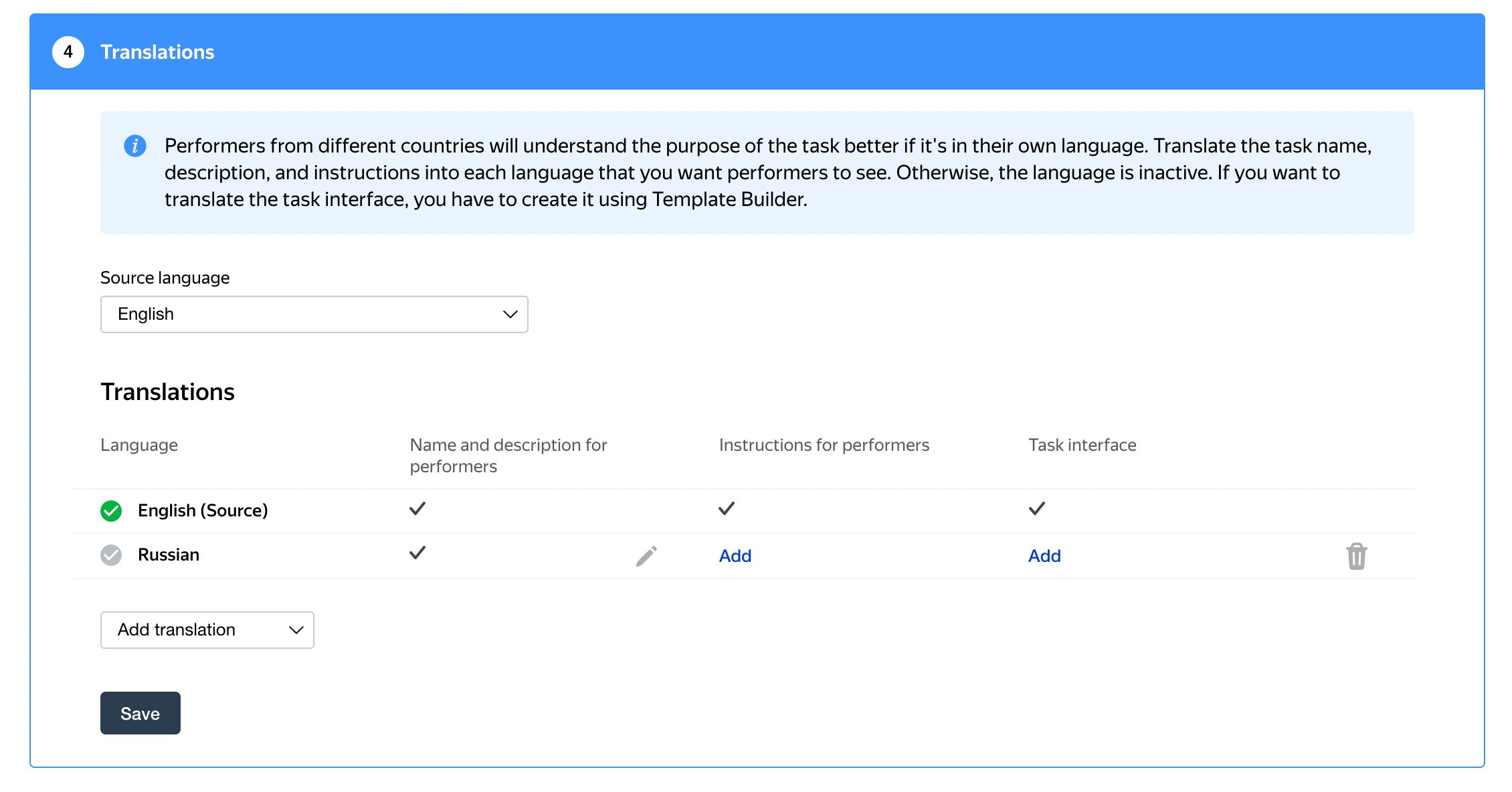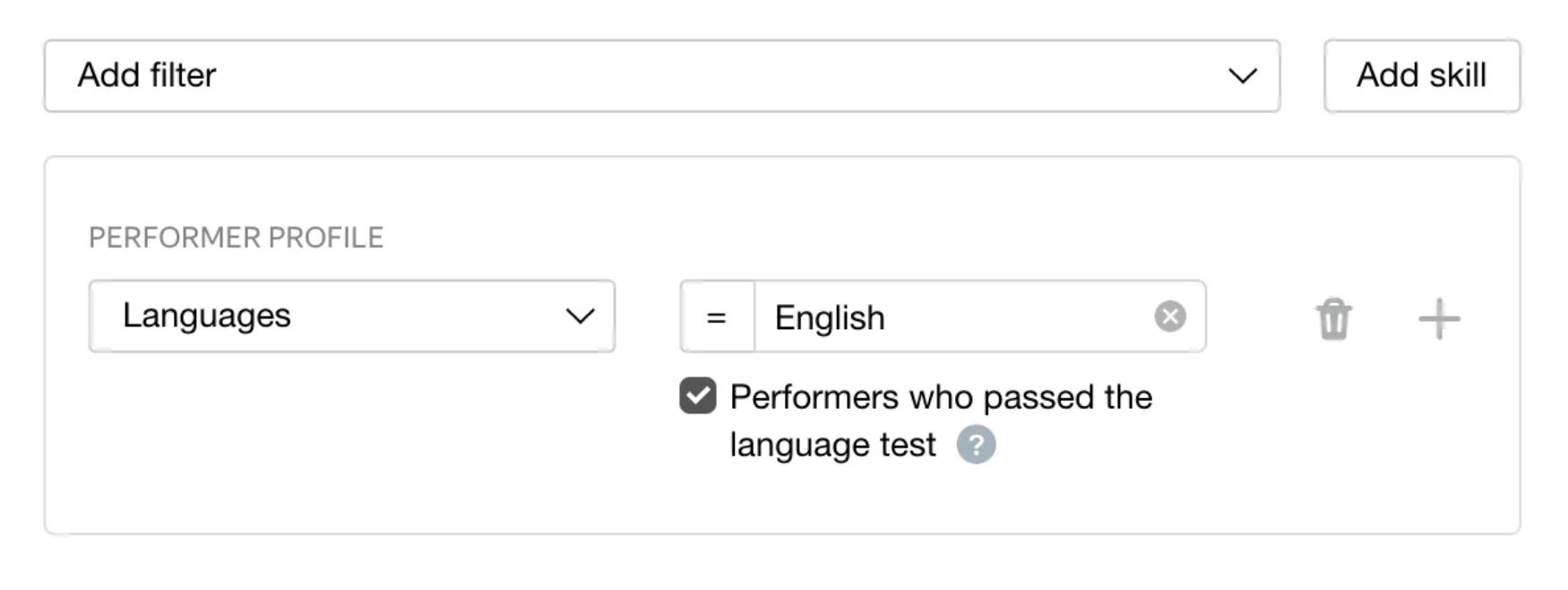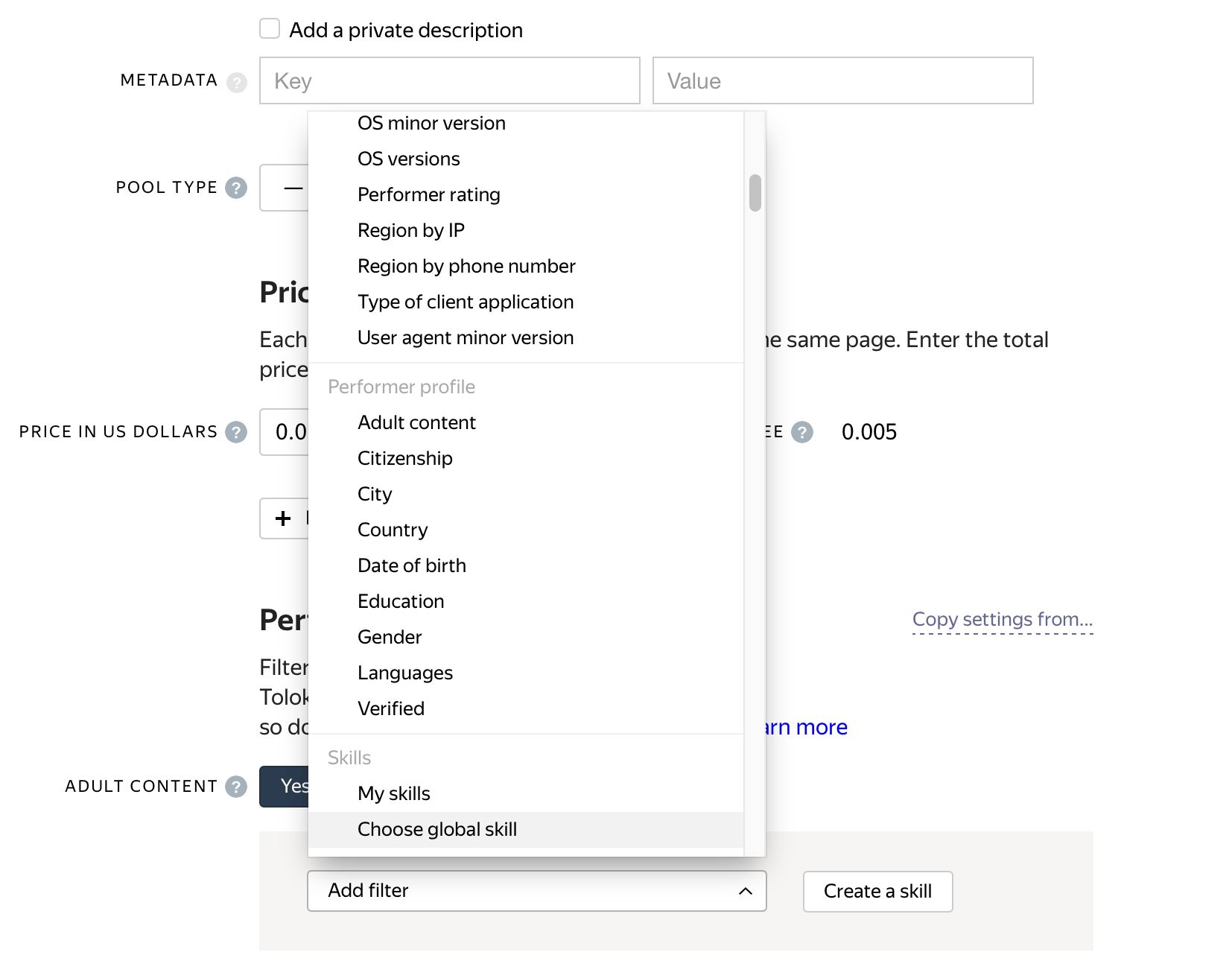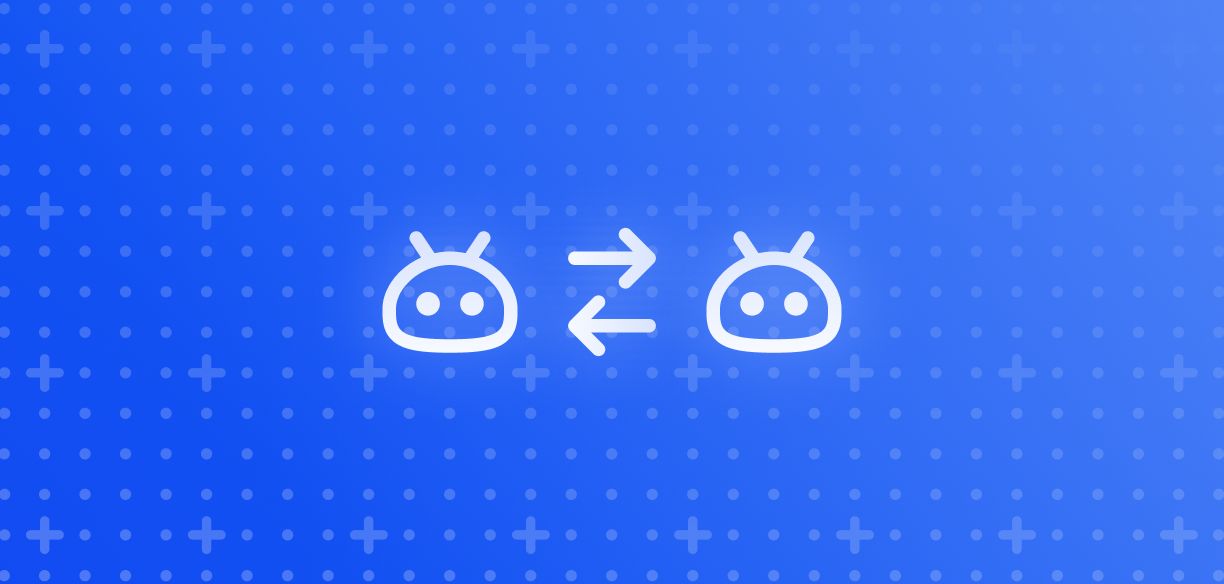Toloka's new features: multilingual support, language-verified Tolokers, and global skills
Subscribe to Toloka News
Subscribe to Toloka News
At Toloka, we always look for ways to reach new heights in labeling accuracy, improve quality and speed of delivery, and offer a smooth-sailing experience to our requesters. And among our latest developments are three fresh features we’re thrilled to unveil after months of work: multilingual support, language-verified Tolokers, and global skills. All three aim to bolster the overall accuracy of data labeling on our platform, getting you to your goals even faster.
Multilingual support
Until not long ago, launching a project spanning multiple languages meant substantially more work. You basically had to run a duplicate project for each language. But even with the extra work, it wasn’t ideal – having tasks described in their native language still makes performers more likely to accept and quickly complete these tasks. The instructions can be followed better, too. Which is why this newly added, improved functionality makes it easy to add translations to a single project without having to waste time setting up copies.

Here’s how you set up projects in multiple languages:
- Choose English as your source language.
- Watch this video before you configure your project.
- Make sure you check the language settings in your profile.
- Translate task interface elements in the Template Builder.
Full instructions on how to set up multilingual projects can be found here.
Language-verified Tolokers
Another feature we recently incorporated is the verification of Tolokers’ language skills. Project success often depends on how well performers know a particular language. From understanding instructions (as is the case with multilingual projects) to the performers' suitability for context-based tasks (for example, spatial crowdsourcing) – this addition makes things easier throughout.
But while Tolokers used to be able to simply claim a proficiency level in a given language, there are now language tests in place that securely verify their claims. As a requester, you can choose the performers that meet your requirements and have completed tasks in the target language before. Just tick the appropriate box during the setup process.

This is yet another crucial step we’ve taken to further improve our data-labeling accuracy, giving more flexibility and scalability to your AI projects.
Global skills
Finally, the third feature we’re introducing today is what we call global skills. They’re a way for requesters to define what specific skills performers need to have, be they a second language or any other specific domain expertise. Importantly, the skills performers state they have get tested on a regular basis. This is the latest tool we’re employing along with a series of other quality control methods to make launching assignments easier and data accuracy consistently better.
To use this feature, follow these simple steps:
- Go to Skills
- Choose a global skill your assignment requires

- Set a relevant filter
- Define the skill by setting a limitation (for example, “skill>80” means your pool will consist of Tolokers who provided better answers than 80% of their peers for that skill).
Let’s hear what you think
Toloka is all about people, and we thrive on your feedback. Since there are always more improvements in the pipeline, hearing your opinion lets us grow around what you need. Be sure to try out the new features and share your thoughts in our community on Slack.

Recent articles
Have a data labeling project?





